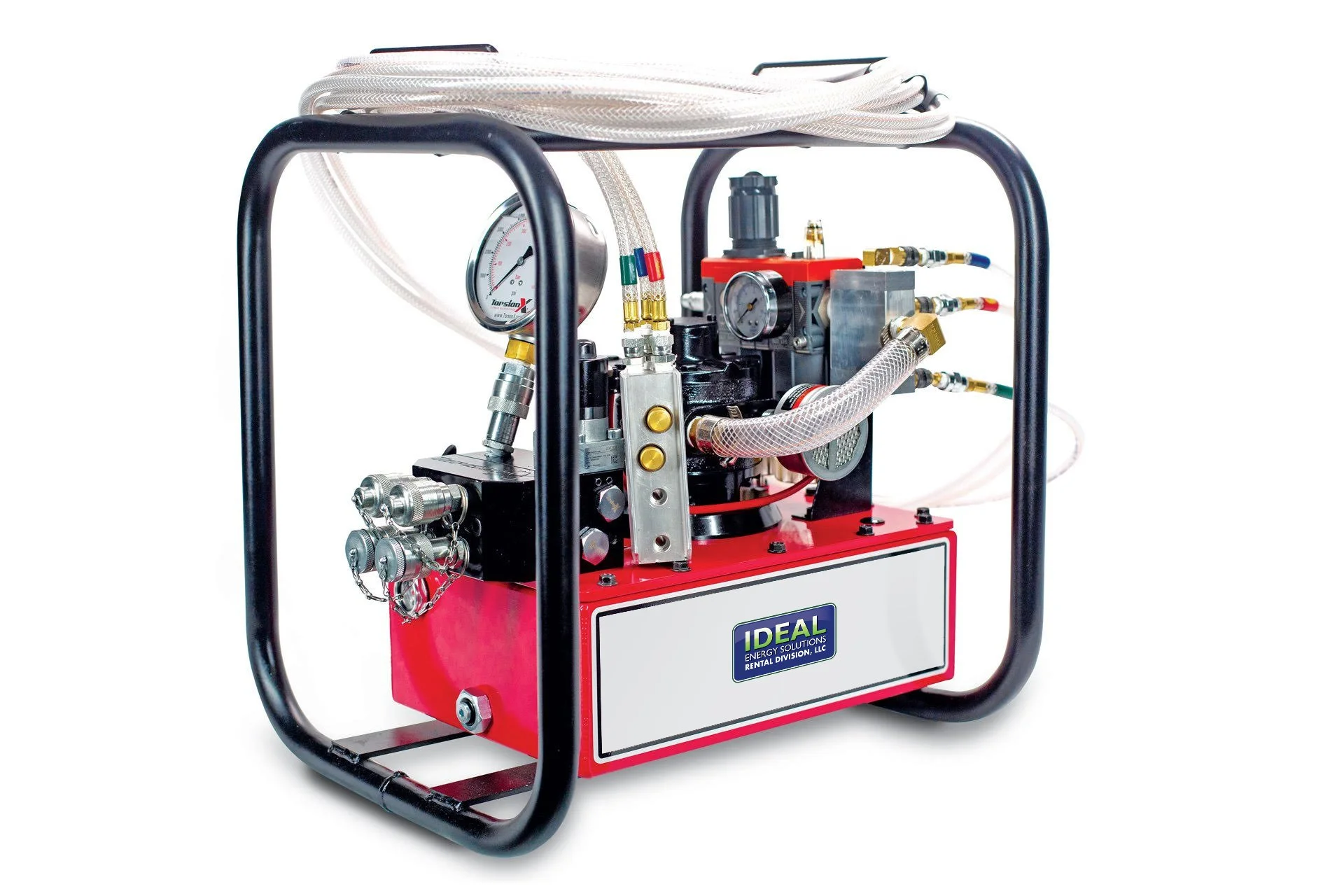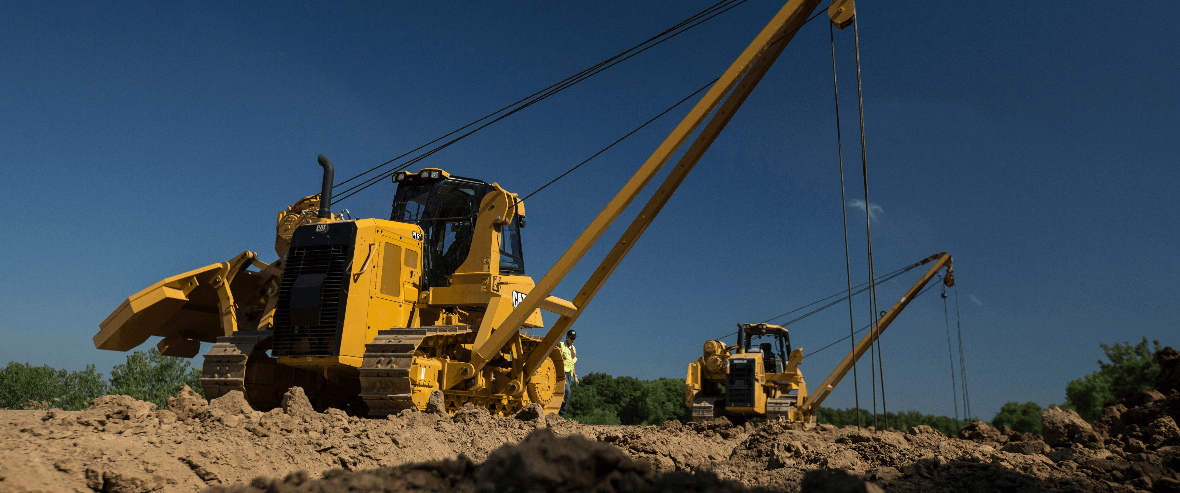Superior Rentals near me: pricing explained for project managers
Wiki Article
A Comprehensive Guide to the Numerous Kinds Of Oil Field Equipment and Pipeline Equipment Available
The oil and gas market relies heavily on specialized devices for efficient extraction and transport. Numerous types of equipment, from drilling rigs to tank, play essential functions in this complicated procedure. Each item of devices serves distinctive functions that contribute to general functional success. Understanding these components is important for any individual associated with the market. As the industry progresses, so too do the innovations that sustain it. What improvements are on the perspective?
Drilling Rigs: The Foundation of Oil Expedition
Drilling rigs act as the vital machinery in the domain name of oil exploration, making it possible for firms to access hydrocarbon reserves buried deep beneath the Earth's surface. These rigs can be found in various types, consisting of land rigs, offshore rigs, and mobile devices, each designed to operate in details environments. Furnished with innovative technology, drilling rigs can permeate geological developments with precision, making sure reliable resource extraction. The architectural honesty and operational abilities of these rigs are critical, as they should hold up against extreme conditions and substantial stress. Moreover, the option of a boring gear influences the total project cost and timeline, making it an essential factor to consider for oil firms looking for to maximize their expedition initiatives and take full advantage of efficiency in their procedures.Pumps: Essential for Fluid Motion
In the oil removal process, the role of pumps is considerable, helping with the activity of fluids throughout different stages of manufacturing. Pumps are crucial for transporting petroleum, water, and various other liquids from underground storage tanks to the surface and after that through pipes to refineries. They can be found in different types, consisting of centrifugal, positive displacement, and completely submersible pumps, each offering particular purposes based upon the liquid qualities and operational needs. Centrifugal pumps are generally used for their performance in high-flow applications, while positive displacement pumps master dealing with thick fluids. The choice of pump influences overall performance, operational safety, and upkeep expenses. Proper choice and maintenance of pumps are essential for enhancing production and minimizing downtime in oil area procedures.Valves: Managing Flow and Pressure

Shutoffs play a vital function in managing the circulation and pressure of liquids within oil fields and pipes. Various kinds of shutoffs serve unique applications, each made to accomplish particular functions basic for effective procedure - Superior Oilfield Rentals. Comprehending the qualities and uses of these valves is vital for enhancing system efficiency and security
Types of Valves
Important elements in oil field operations, valves play a critical duty in regulating the circulation and stress of liquids within pipes and tools. Different kinds of valves are utilized to meet the diverse needs of oil and gas manufacturing. Usual kinds consist of entrance valves, which offer a straight-line flow and minimal stress decrease; globe shutoffs, understood for their throttling capabilities; and round shutoffs, acknowledged for their quick on/off control. In addition, check shutoffs protect against heartburn, while butterfly shutoffs provide a lightweight solution for managing circulation. Each valve type is made with certain products and setups to withstand the harsh problems typically found in oil areas, guaranteeing reliability and performance in operations. Recognizing these kinds is crucial for reliable system administration.Valve Applications and Functions
While various kinds of valves offer unique purposes, their key applications rotate around controlling flow and stress within oil and gas systems. Shutoffs such as gate, globe, and ball shutoffs control fluid activity, making sure peak performance and safety and security. Gateway valves are commonly utilized for on/off control, providing marginal circulation resistance. Globe shutoffs, on the other hand, deal exact flow law, making them appropriate for strangling applications. Sphere valves are preferred for their quick procedure and tight sealing capacities. Additionally, pressure safety valve are important for stopping system overpressure, securing devices honesty. Generally, the appropriate choice and application of valves improve functional efficiency, making sure the dependable transport of oil and gas via pipelines and processing centers.Compressors: Enhancing Gas Transport
Compressors play an essential duty in the reliable transportation of natural gas, making certain that it relocates smoothly with pipes over cross countries. These devices enhance the pressure of all-natural gas, permitting it to overcome friction and elevation adjustments within the pipeline system. In addition, compressors help with the balancing of supply and need, fitting variations in usage and manufacturing rates. Different kinds of compressors are utilized in the market, including centrifugal, reciprocating, and rotary screw compressors, each offering distinct advantages based on the operational needs. Normal upkeep of these compressors is vital to maximize effectiveness and lessen downtime, inevitably adding to a trustworthy gas transport network. Their critical function underscores the importance of compressors in the overall oil and gas infrastructure.Storage Tanks: Safe and Efficient Fluid Management
Effective transport of gas counts on different supporting systems, one of which is the proper management of storage space containers. These containers play an essential duty in securely including liquids, making sure that operational performance is preserved while reducing ecological dangers. Constructed from sturdy products, they are developed to withstand high stress and corrosive components. Appropriately sized and tactically located, storage containers assist in the smooth flow continue reading this of all-natural gas and other liquids, avoiding traffic jams in supply chains. Normal maintenance and monitoring are vital to discover leaks or architectural concerns, advertising safety and conformity with regulative standards. Inevitably, the reliable administration of storage containers is essential for the general integrity and reliability of the oil and gas sector's fluid handling systems.
Pipeline Equipments: Infrastructure for Transport
Pipeline systems offer as the foundation of the oil and gas sector, assisting in the reliable transport of hydrocarbons over vast ranges. These systems consist of various components, consisting of pipes, shutoffs, pumps, and compressors, all diligently designed to guarantee seamless flow. The products utilized in pipeline building and construction, typically steel or high-density polyethylene, are chosen for resilience and resistance to rust. Pipeline networks can extend throughout land and water, attaching like this manufacturing websites to refineries and warehouse. In addition, advanced innovation allows real-time tracking of circulation prices and stress degrees, boosting functional performance. The strategic positioning of these pipes decreases ecological influence while maximizing resource access, thus playing an essential duty in meeting energy demands worldwide.Security Equipment: Making Sure Employee and Environmental Management
The procedure of pipeline systems, while crucial for energy transportation, also offers substantial safety and security obstacles for employees and the atmosphere. Security devices plays a significant function in reducing these risks. Personal safety devices (PPE) such as safety helmets, gloves, and non-slip footwear safeguards employees from physical hazards. Additionally, gas detection systems monitor for leakages, ensuring that hazardous substances do not pose a threat to workers or the surrounding community. Emergency closure systems are essential for quickly stopping operations throughout a crisis, protecting against prospective disasters. Spill containment products, including absorbents and barriers, are essential for reducing ecological influence. In general, buying comprehensive security tools is vital for maintaining operational honesty and securing both workers and the setting in the oil and gas industry.
Frequently Asked Questions
Just how Do I Pick the Right Oil Field Equipment for My Project?
Selecting the appropriate oil area equipment includes examining project specifications, budget restraints, and functional demands. Consider variables such as tools dependability, compatibility with existing systems, and the provider's reputation to assure peak efficiency and safety.What Are the Upkeep Needs for Oil Field Equipment?
Upkeep needs for oil area devices include regular inspections, lubrication, and timely repairs. Operators needs to additionally adhere to supplier standards, screen performance metrics, and guarantee conformity with safety laws to improve long life and effectiveness.
Just How Can I Ensure Compliance With Environmental Regulations?
To guarantee compliance with environmental guidelines, companies should perform regular audits, execute ideal practices, purchase training, preserve correct documentation, and stay upgraded on regulation (Superior Rentals Contact). Collaboration with environmental companies can likewise boost adherence to lawsWhat Is the Average Lifespan of Pipeline Equipment?
The typical life expectancy of pipeline devices commonly ranges from 20 to 50 years, depending on elements such as material top quality, environmental conditions, and upkeep methods. Regular examinations can substantially influence longevity and functional performance.Exactly how Do I Safely Move Oil Field Equipment to Remote Locations?
Delivering oil field equipment to remote places requires mindful planning, consisting of path assessment, safeguarding licenses, using proper cars, and making certain safety and security advice methods are complied with. Proper training and interaction among teams are crucial for successful transport.Report this wiki page